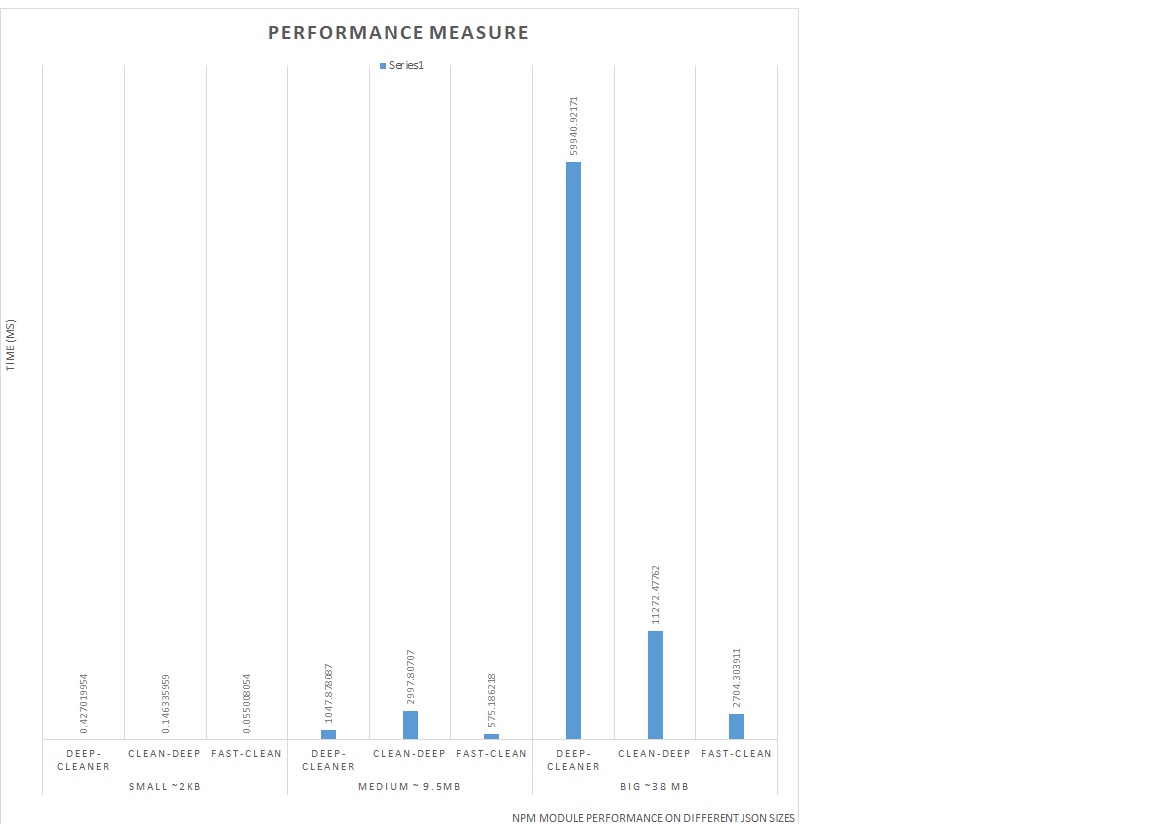Fast-Cleaner
Fast-Cleaner is a lightweight, dependency-free npm module that helps you clean JavaScript objects by removing unwanted values such as undefined, NaN, empty objects {}, empty arrays [], and more.
It’s designed to be fast, memory-efficient, and flexible with full support for cleaning deeply nested objects and arrays.
👉 Check out what makes this module unique.
New in v1.5+
Version 1.5+ supports 2 new options. cleanKeys & skipKeys
Checkout the options for more info.
New in v1.3+
Starting from version 1.3+, Fast-Cleaner supports in-place cleaning.
This allows you to clean objects without creating new copies, reducing memory usage for large objects.
- Enable it by setting
cleanInPlace: true. - By default, this is turned off for backward compatibility.
📚 Table of Contents
- Installation
- Usage
- Example
- Options
- Additional Examples
- Default Cleaned Values
- What Makes This Module Unique
💾 Installation
npm install --save fast-clean🛠 Usage
const cleanedObj = cleaner.clean(objectToClean, options);TypeScript Usage
const cleanedObject = cleaner.clean<YourType>(objectToClean, options);If you don’t provide a type, it defaults to any.
📝 Example
const obj = {
a: 'value',
emptyString: '',
emptyArray: [],
emptyObject: {},
isNull: null,
falseValue: false,
zero: 0,
isUndefined: undefined,
b: {
a: 'another value',
anotherEmptyString: '',
arr: [
{ c: null },
{ d: 'value' },
{ a: [
{ x: true, y: NaN },
{ y: NaN },
{ z: [null, true], subChild: [{ a: true }, {}] }
]}
],
secondArr: [{ a: { b: undefined } }],
nestedArr1: [[null, true, false], [undefined, undefined]],
nestedArr2: [[null], [undefined, undefined]],
}
};
const cleanedObj = cleaner.clean(obj, { nullCleaner: true });Output
{
a: 'value',
falseValue: false,
zero: 0,
b: {
a: 'another value',
arr: [
{ d: 'value' },
{ a: [
{ x: true },
{ z: [true], subChild: [{ a: true }] }
]}
],
nestedArr1: [[true, false]],
}
}⚙️ Options
Pass an options object to configure the cleaning behavior.
| Option | Type | Default | Description |
|---|---|---|---|
nullCleaner |
boolean |
false |
Remove null values. |
emptyArraysCleaner |
boolean |
true |
Remove empty arrays []. |
emptyObjectsCleaner |
boolean |
true |
Remove empty objects {}. |
emptyStringsCleaner |
boolean |
true |
Remove empty strings ''. |
nanCleaner |
boolean |
true |
Remove NaN. |
cleanInPlace |
boolean |
false |
Mutate the original object instead of creating a new one. |
cleanKeys |
string[] |
[] |
Always clean these keys, even if their values are normally valid. |
skipKeys |
string[] |
[] |
Never clean these keys, even if their values are normally removed. |
⚖️ Precedence rule: If a key exists in both
cleanKeysandskipKeys,cleanKeystakes priority (the key will be cleaned).
🔍 Additional Examples
With nullCleaner = false
{
a: 'value',
isNull: null, // <<< Remained
falseValue: false,
zero: 0,
b: {
a: 'another value',
arr: [
{ c: null }, // <<< Remained
{ d: 'value' },
{ a: [
{ x: true },
{
z: [null, true], // <<< Kept first null
subChild: [{ a: true }]
}
]}
],
nestedArr1: [[null, true, false]], // <<< Kept first null
nestedArr2: [[null]], // <<< Remained
}
}With nullCleaner = true & emptyArraysCleaner = false
{
a: 'value',
emptyArray: [], // <<< Remained
falseValue: false,
zero: 0,
b: {
a: 'another value',
arr: [
{ d: 'value' },
{
a: [
{ x: true },
{
z: [true],
subChild: [{ a: true }]
}
]
}
],
secondArr: [], // <<< Remained
nestedArr1: [[true, false], []], // <<< Kept last element
nestedArr2: [[], []] // <<< Remained
}
}With nullCleaner = true & emptyObjectsCleaner = false
{
a: 'value',
emptyObject: {}, // <<< Remained
falseValue: false,
zero: 0,
b: {
a: 'another value',
arr: [
{},
{ d: 'value' },
{
a: [
{x: true},
{}, // <<< Remained
{
z: [true],
subChild: [
{a: true},
{} // <<< Remained
]
}
]
}
],
secondArr: [{
a: {} // <<< Remained
}],
nestedArr1: [[true, false]]
}
}With both cleanKeys = ['a'] and skipKeys = ['isUndefined']
{
isNull: null,
falseValue: false,
zero: 0,
isUndefined: undefined, //<<< Remained
b: {
arr: [
{ c: null },
{ d: 'value' },
],
nestedArr1: [[null, true, false]],
nestedArr2: [[null]],
}
// All 'a' attributes are removed
}🧹 Default Cleaned Values
By default, Fast-Cleaner removes:
undefined''(empty strings)NaN{}(empty objects)[](empty arrays)
🌟 What Makes This Module Unique
- ⚡ Extremely lightweight and fast.
- 🛠 No dependencies.
- 🔄 Supports in-place cleaning for better memory efficiency.
- 🧩 Handles deeply nested structures with ease.

👉 See how benchmarks were run here.